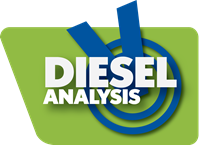 EXECUTIVE SUMMARY
EXECUTIVE SUMMARY
The Vincentric Canadian Diesel Analysis provides consumers and the automotive industry with information regarding the cost of owning a diesel vehicle compared to its closest all-gas counterpart. This year, results demonstrated that 111 of the total 280 diesels analyzed offered a lower total cost of ownership than their closest all-gasoline powered equivalent. These 280 available diesel vehicles were categorized into three types: Passenger Cars (4 diesels), SUVs, Crossovers & Vans (56 diesels) and Pickup Trucks (220 diesels). Of the 111 cost-effective diesels, all four Passenger Car diesels showed lower total cost-of-ownership compared to their closest all-gasoline-powered counterparts. Other categories showed a range in cost effective diesels, with 62% in the SUVs, Crossovers & Vans category, and 32% in the Pickup Trucks category.
CANADIAN DIESEL ANALYSIS
At Vincentric, we have prepared different analyses such as the Hybrid and Diesel Analyses in both Canada and the U.S. to help users understand the financial dynamics of alternative-fuel vehicles compared to their closest all-gasoline counterparts. With the 2016 model year Canadian Diesel Analysis, Vincentric helps users to better understand the expected costs (or savings) of driving a diesel so more informed decisions can be made when considering the purchase of a diesel vehicle.
Fuel prices used in this analysis are based on a weighted average over the previous five months rather than the exact fuel prices you might see at a gas station today. This is done to help ensure that the analysis reflects current market trends and not market extremes.
The report assumes the vehicles are owned for five years with 25,000 kilometers driven annually. The numbers in the report are national averages, however the same analysis can be done for any province.
Finally, please note the information below is based on data from our November 2016 Vincentric database update. We compared diesel vehicles to their all-gas counterparts based on a similar trim level. Cost differentials will vary if other trims are analyzed.
COST OF OWNERSHIP and FUEL COST COMPARISON
The Vincentric Canadian Diesel Analysis demonstrates to Canadian consumers that in addition to improved environmental benefits of diesels, a strong financial case can be made for the purchase of one of these 111 cost-effective vehicles. The diesel from each category with the greatest savings compared to its closest all-gasoline-powered equivalent is listed below:
- 2016 Land Rover Range Rover Diesel 4D Utility ($22,040 cost-of-ownership savings)
- 2016 Ford F-350 S/D Diesel XL Supercab DRW 4WD ($8,856 cost-of-ownership savings)
- 2016 Mercedes-Benz E Class Diesel E250 BlueTEC 4D Sedan 4MATIC ($8,222 cost-of-ownership savings)
Of course for those who are looking to minimize fuel purchases, it is important to know the diesel vehicles with the lowest overall fuel costs. In this analysis, 42 diesels had fuel cost savings over $5,000 compared to their closest all-gasoline powered equivalents. This includes two passenger cars, 39 SUVs/crossovers & vans and one pickup truck. It is important to note that all 280 of the diesels analyzed showed some amount of fuel savings, ranging from $1,960 to $10,744. The diesel with the greatest fuel cost savings from each category is listed below:
- 2016 Land Rover Range Rover Diesel 4D Utility ($10,744 fuel savings)
- 2016 Ram 1500 Diesel ST Reg Cab LWB 4WD ($6,411 fuel savings)
- 2016 Mercedes-Benz E Class Diesel E250 BlueTEC 4D Sedan 4MATIC ($6,030 fuel savings)

Full analysis results with further detail regarding the cost of ownership and fuel consumption for each diesel and its all-gasoline counterpart are available upon request.

Please contact customer.service@vincentric.com to discuss receiving complete analysis results.
WHY DO OWNERSHIP COSTS DIFFER BETWEEN DIESELS AND THEIR GAS COUNTERPARTS?
In most cases studied, the diesel vehicle had a higher market price than its gasoline alternative, which causes several cost factors to increase including depreciation, finance, opportunity costs and fees & taxes. However, nearly 40% of diesel vehicles showed cost-effectiveness this year due to better fuel economy. Ultimately, it’s important for consumers to look at their needs and the specific models available because depending on the negotiated price, driving patterns and intended length of ownership, a diesel can still be a great value.
*Image shown may not reflect the specific trim level of the vehicle analyzed.
To view the press release regarding the Vincentric Canadian Diesel Analysis, click here.
|

If you are interested in learning more about other Industry Reports from Vincentric, click here.
|